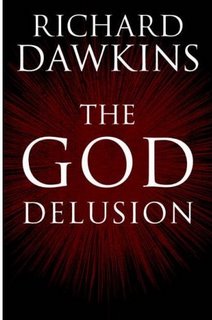
BBC seeks to suppress bias report
Hagit Klaiman
Published: 10.24.06, 15:50
 LONDON - What is keeping the BBC, which is ready to invest intense efforts and money, from publishing a report it commissioned to investigate whether its reporting is biased against Israel?
LONDON - What is keeping the BBC, which is ready to invest intense efforts and money, from publishing a report it commissioned to investigate whether its reporting is biased against Israel?This question is being asked in Britain after a report about the BBC's petition to the High Court demanding the right to keep a report about its broadcasting secret. The report was commissioned by the BBC in 2003 and 2004.
In 2003, Israel complained about the broadcaster's coverage of the Israeli-Palestinian conflict, accusing the BBC of being biased against Israel.
Biased Media
Among other things Israel condemned the BBC's refusal to call Palestinian suicide bombers "terrorists". The crisis reached a nadir when Israel banned diplomats and government officials from speaking with the broadcaster over its release of a documentary claiming that Israel has numerous weapons of mass destruction.
In 2004, the BBC decided to appoint editorial advisor Malcolm Balen to pile a report about the organization's coverage of the Middle East conflict.
The BBC refused to publish the full report although acknowledged that its reporting was biased against Israel. Ynet has a document detailing the legal saga between the BBC and Attorney Steven Sugar, who filed a court petition demanding the BBC release the report.
Sugar told Ynet that his motivation was his belief that the public is entitled to have the full picture, especially when it comes to the complicated and entangled Israeli-Palestinian conflict.
He admitted that he has not conducted his own study on the subject but he said he trusts other studies that showed the BBC's coverage of the conflict is biased.
He noted Trevor Assersson of the Jerusalem Center for Public Affairs who found that the BBC's coverage of the conflict is biased and that the organization breaches all the norms of journalism required of a news body.
In 2005 the Freedom of Information act was passed in Britain. Sugar turned to the BBC with a request to have access to the report under the Act. He was surprised to be turned down.
He was told that his request was turned down because the BBC is not obliged to publish the report despite it being a public body.
Sugar then turned to the Information Commission which refused his request and sided with the BBC.
Sugar was determined and turned took the case to court. The court ruled that the BBC should make the report available to the public.
The BBC decided to appeal the decision at the High Court.
Sugar: BBC trying to hide something
Sugar vowed to continue the struggle against the BBC. He told Ynet he is not representing any social body but he believes that it is the tax-paying public's right to know whether in 2003 and 2004 the BBC covered the Middle East conflict in a biased way.
He said he believes that Balen is a neutral and objective editor and that he greatly appreciates his hard work in penning the report.
He said Balen will not object to the publication of the report but he estimates that the BBC would argue that the public has no right to know what an independent editor advised the broadcaster to do.
Sugar said what the BBC is trying to cover up is really important. He said it was after Balen's report that the BBC decided to appoint Jeremy Bowen as Middle East Editor despite the spirit of correspondent Orla Guerin who left Israel in response.
Sugar said he has noticed a change in the BBC's coverage of Israel which he links to the Balen report.
Ynet turned to the BBC for a response about why they are reluctant to withhold the report. A BBC spokeswoman said: "We will be appealing the decision of the Information Tribunal. This case has wider implications relating to the way that the Freedom of Information Act applies to public broadcasters.


















